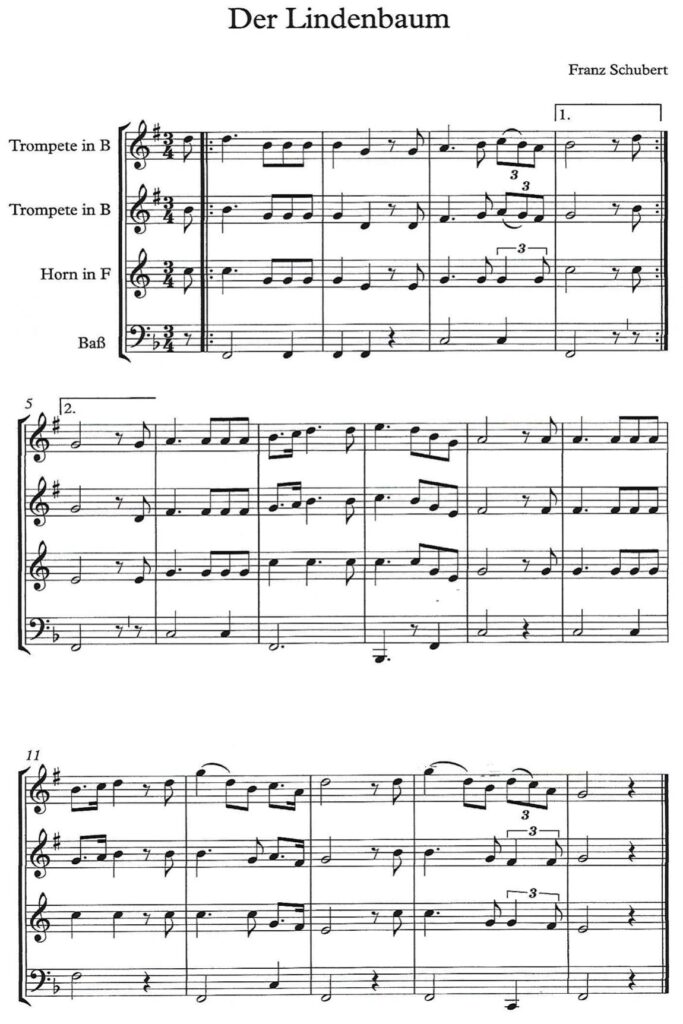Franz Schubert (1797-1828) Der Lindenbaum / The Linden Tree D 911

(1st in Bb, 1st in C / 2nd in Bb, 2nd in C / 3rd in F, 3rd in C, 3rd in Bb / 4th in C)

Franz Schubert, geborenin der Gemeinde Himmelpfortgrund (heute ein Stadtteil von Wien), gestorben in Wieden (heute auch ein Stadtteil von Wien) war ein österreichischer Komponist. Obwohl Franz Schubert schon im Alter von 31 Jahren starb, hinterließ er ein reiches und vielfältiges Werk. Er komponierte über 600 Lieder, weltliche und geistliche Chormusik, Messen, Sinfonien, Ouvertüren, Bühnenwerke, Klaviermusik und Kammermusik.
Am Brunnen vor dem Tore ist der erste Vers eines deutschen Liedes, das sowohl in Form eines Kunstliedes als auch als Volkslied bekannt geworden ist. Der ursprüngliche Titel lautet Der Lindenbaum. Der Text stammt von Wilhelm Müller und gehört zu dem Gedichtzyklus Die Winterreise. In der bekanntesten und populärsten Bearbeitung der Schubertschen Vertonung von Friedrich Silcher ist das Werk zum Volkslied geworden.
Franz Schubert, born in the community of Himmelpfortgrund (today a district of Vienna), died in Wieden (today also a district of Vienna) was an Austrian composer. Although Franz Schubert died at the age of 31, he left behind a rich and varied work. He composed over 600 songs, secular and sacred choral music, masses, symphonies, overtures, stage works, piano music and chamber music.
Am Brunnen vor dem Tore (At the fountain in front of the gate) is the first verse of a German song that has become known both in the form of an art song and as a folk song. The original title is Der Lindenbaum. The text comes from Wilhelm Müller and belongs to the cycle of poems Die Winterreise. In the best-known and most popular arrangement of Schubert’s setting by Friedrich Silcher, the work has become a folk song.
| sound sample / Tonbeispiel | score/parts PDF download: € 00,- | add to cart / in den Warenkorb |
